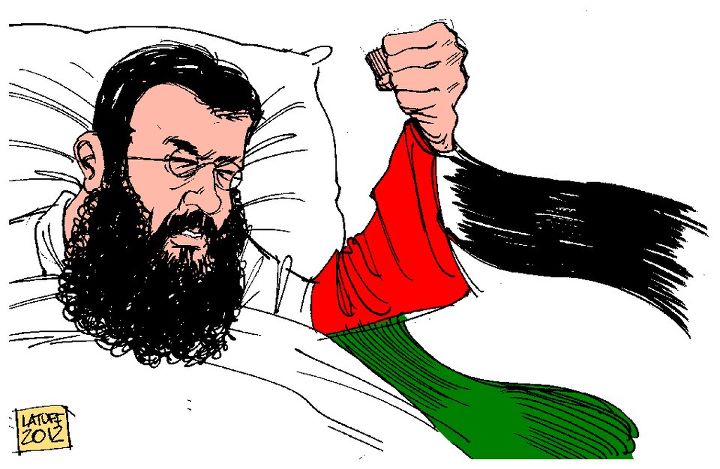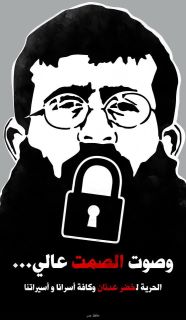Category: Press Releases
-
URGENT: Heed Randa Adnan’s call. Military court rejects Khader Adnan’s appeal in de facto death sentence
13 February 2012 | Samidoun: Palestinian Prisoner Solidarity Network “My husband is dying inside an Israeli jail. The world should make sure I am able to see him,” she said. “And it should pressure the Israeli government to release him before it’s too late… Israel denied Khader any fairness or decency…But maybe the rest of…
-
Commemorating Palestinian Land Day: Join the BDS Global Day of Action on 30 March 2012!
10 February 2012 | Palestinian BDS National Committee Commemorating Land Day, the Palestinian BDS National Committee (BNC) invites people of conscience around the world to unite for a BDS Global Day of Action on 30 March 2012 in solidarity with the Palestinian people’s struggle for freedom, justice and equality and for Boycott, Divestment and Sanctions (BDS) against Israel until it…
-
Take Urgent Action: Appeals Decision Delayed as Khader Adnan Dying to Live
12 February 2012 | Samidoun- Palestinian Prisoner Solidarity Network Khader Adnan, Palestinian political prisoner being held under administrative detention, is now entering his 57th day of hunger strike and facing a severe health crisis. Despite the fact that Khader Adnan risks death with every minute that passes, the Israeli military court system is delaying decisions…



